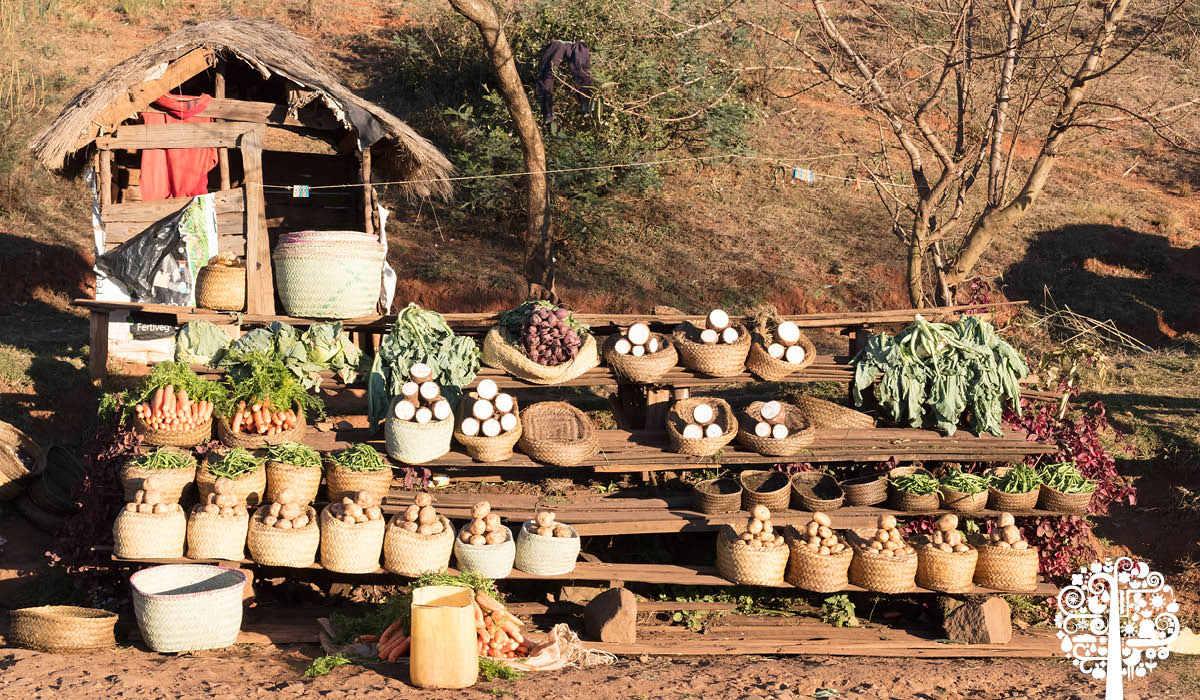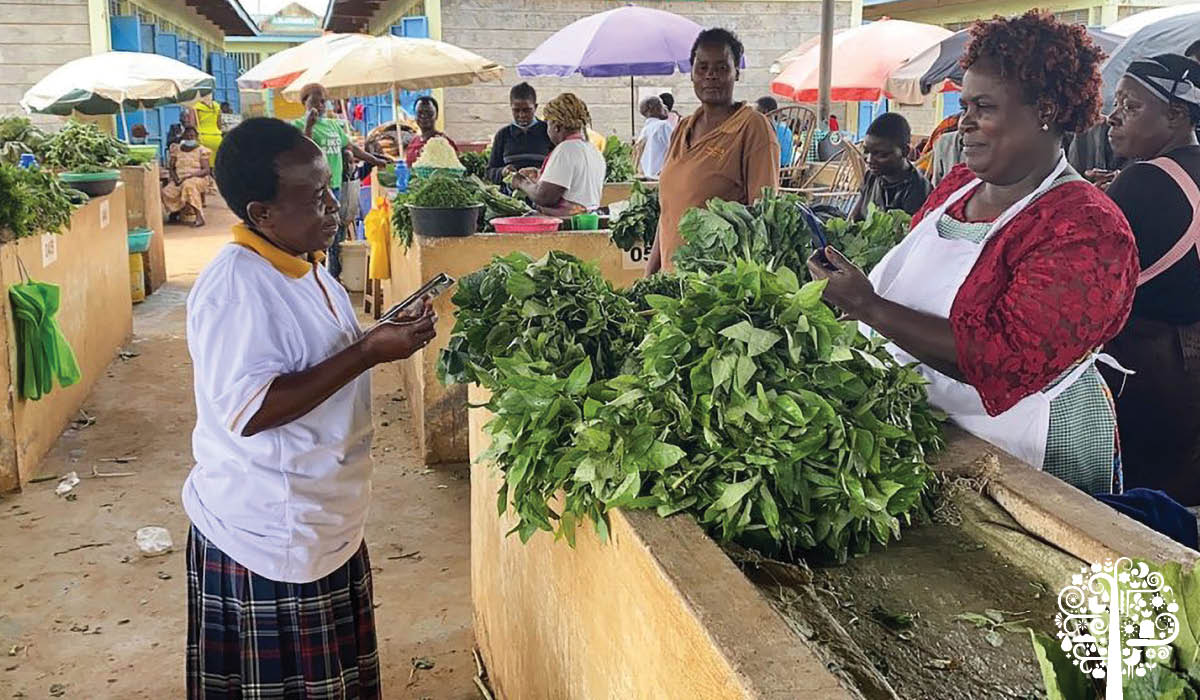With the World Health Organization estimating that 790 million people struggle with food insecurity around the globe, blockchain technology is helping those vulnerable to malnutrition in western Kenya. Last May, Virginia Tech researchers deployed smartphones equipped with a unique app in the East African country so that small-scale farmers can access the information they need to consume more top-quality vegetables.
While African indigenous vegetables are a healthy source of micronutrients in Kenya, unfortunately, few people eat them, especially those living in low-income households.

The project is being led by Virginia Tech’s Centre for International Research, Education, and Development (CIRED) in collaboration with Egerton University in Kenya and Australian startup, AgUnity. The blockchain-based app is designed to help break down barriers to the consumption of nutritious vegetables; access for all.
How It Works
AgUnity’s Versio 3 App tracks the vegetables on their journey from the producer to the consumer. The technology means buyers will have a wealth of information at their fingertips, such as how the produce was grown, transported to market, and processed, thus creating a transparent local food system.
Furthermore, farmers, traders, and retailers can use the app to check prices and quantities of available vegetables and whether growers used chemical fertilizers and pesticides in the fields. They can also check the platform to sell their food and see what varieties people want.
“We expect that by the end of this project, producers, traders, and retailers will see higher profits from the sale of nutritious indigenous vegetables,” said Jessica Agnew, assistant director of research, operations, and program management at CIRED and one of the project leads. “The increased availability, quality, and competitive prices of the vegetables will result in consumers purchasing and eating the vegetables more often. We expect that increased information about the safety of the vegetables will also encourage consumers to eat vegetables in high enough quantities to support nutrition.”
A Step In The Right Direction
The smartphone app is proving how blockchain technology can help solve food security issues. The population in sub-Saharan Africa is predicted to grow by 2 billion by 2050, and tremendous efforts are needed to boost nutrition and the consumption of healthy foods. Improving food safety and opening communication lines between producers and buyers are excellent ways to achieve that goal.
Betty is a small-scale farmer from Kakamega in western Kenya who was trained to use the app to connect buyers with her products.
“The training has been helpful to me as a farmer,” she says. “I will no longer use inorganic fertilizer that I previously used. With the phone app, I will be confirming with retailers and traders if they need vegetables and how much before going to the farm to pluck, unlike previously when I would just do it blindly and not sell them, leading to losses.”

All transactions between users are securely recorded on the app, which also offers other services such as training and record-keeping.
Thus far, the rollout appears to be successful. The project is now looking at how effective the app has been in the field.
“Looking ahead, we hope to explore more how the information stored on the app can inform consumers about the quality of the vegetables and how they can be cooked in a way that best retains their nutrition,” says Ralph Hall, associate director and associate professor in the School of Public and International Affairs and one of the project’s leads.
Just one small example of how technology is being used for good.
Sources:
World Health Organization: The state of food security and nutrition in the world 2020
Virginia Tech: Deployment of smartphones, app aims to improve food and nutrition security in Kenya